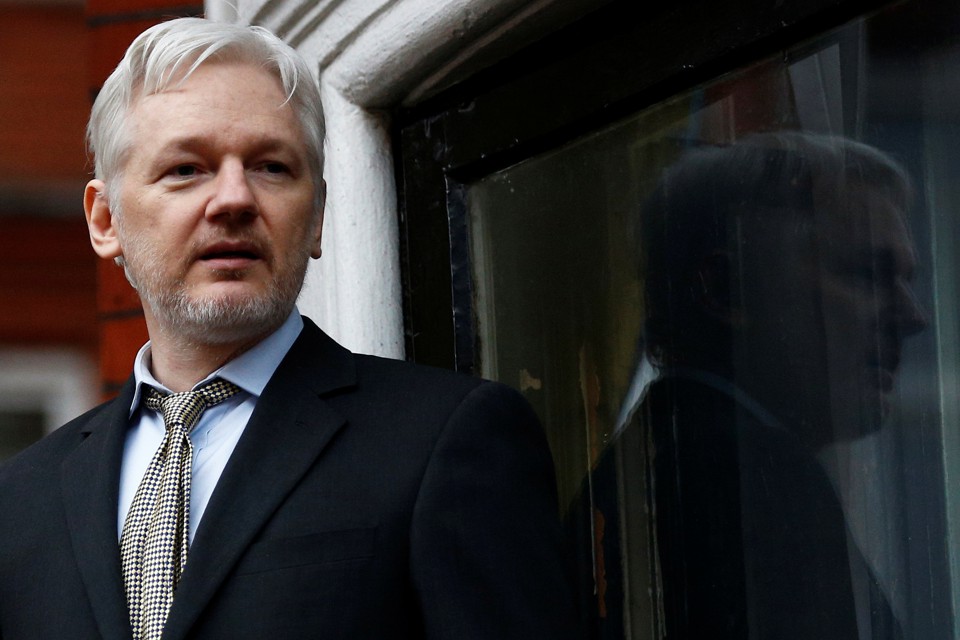With its latest leak, the site is daring reporters to go on a scavenger hunt for scoops.

Since around the
time of the presidential election in November, the U.S. media has taken a
hard look at its tumultuous love affair with WikiLeaks. News
organizations had lapped up the documents that the site was churning
out: first, thousands of emails from the Democratic National Committee,
then thousands more from the personal Gmail account of Hillary Clinton’s
campaign manager, John Podesta.
The U.S. intelligence
community now says the emails were stolen by Russian hackers and passed
along to WikiLeaks for publication, an allegation Assange continues to
deny. As the source of the leaked information came into focus, some news
organizations began to rethink their eager participation in amplifying
it. “Every major publication, including The [New York] Times,
published multiple stories citing the DNC and Podesta emails posted by
WikiLeaks, becoming a de facto instrument of Russian intelligence,” the Times wrote in a detailed postmortem of Russia’s meddling around the U.S. election.
So when WikiLeaks dumped
thousands of electronic documents stolen from the CIA on its website on
Tuesday—a leak it called “the largest intelligence publication in
history”—the media got its first chance since the election to try out
their new skeptical approach.
At first blush, the new WikiLeaks reporting didn’t look much different than the old WikiLeaks reporting.
The Times published a piece
written by three journalists that repackaged the contents of a
WikiLeaks press release announcing the CIA document dump. The story’s
breathless second paragraph read: “If the documents are authentic, as
appeared likely at first review, the release would be the latest coup
for the anti-secrecy organization and a serious blow to the CIA, which
maintains its own hacking capabilities to be used for espionage.”
The Times article didn’t mention the possibility of a connection between the Russian government and WikiLeaks, which was the focus of a report published by the Director of National Intelligence in January. The Washington Post included a paragraph about WikiLeaks’ track record in its story
about the CIA documents, and quoted Nicholas Weaver, a security expert
at the University of California, Berkeley, speculating that the data was
“probably legitimate or contains a lot of legitimate stuff,” in part
because of the sheer size of the leak.
To be fair, the WikiLeaks dump is momentous, and the Times and the Post
published stories about it before it was more than a few hours old.
They attempted to check whether the leak was genuine, and made it clear
that their determinations of the leak’s authenticity were only
preliminary. It is, after all, easy to slip in a few fabricated
documents in a trove of thousands.
The
question of how to approach WikiLeaks seems yet unsolved. Should
journalists absolve the site of its apparent participation in a Russian
campaign to tip the results of the U.S. election? Does the gravity of
the documents contained in the CIA leak necessitate reporting on them,
even before they’re thoroughly vetted? If these documents appear
genuine, how much should news articles question why WikiLeaks published
them?
For its part, WikiLeaks appears to be shifting its
strategy with its latest document dump. In the past, it has let the
public loose on its leaked documents with little more than a few
paragraphs of introduction, occasionally building search functions to
let users sift through the largest dumps. The CIA leak, on the other
hand, came with a detailed press release and analysis of the some key
findings from the documents, written in a journalistic style.
Uncharacteristically,
WikiLeaks appears to have gone out of its way to redact sensitive
information and withhold malicious code from the CIA documents it made
public. That’s a slight departure from previous leaks, which were wholly
unfiltered. In an opinion piece published in the Times
in November, Zeynep Tufekci, a scholar of technology and society, wrote
about the difference between whistleblowing and document dumping:
Whistle-blowing … is a time-honored means for exposing the secret machinations of the powerful. But the release of huge amounts of hacked data, with no apparent oversight or curation, does the opposite. Such leaks threaten our ability to dissent by destroying privacy and unleashing a glut of questionable information that functions, somewhat unexpectedly, as its own form of censorship, rather than as a way to illuminate the maneuverings of the powerful.
The analyses in the WikiLeaks release appear
to be nudging reporters toward a few storylines in particular:
bureaucratic infighting between the CIA and the National Security
Agency, and the dangers of “cyberweapons proliferation,” to name two.
But a section of the release with answers to frequently asked questions
includes an odd section that speaks directly to journalists.
One
answer encourages reporters who might fear that others will “find all
the best stories before me.” WikiLeaks responds: “Unlikely. There are
very considerably more stories than there are journalists or academics
who are in a position to write them.”
Stranger still is
another answer that suggests WikiLeaks left some of the juiciest
documents out of its initial summary. “WikiLeaks has intentionally not
written up hundreds of impactful stories to encourage others to find
them and so create expertise in the area for subsequent parts in the
series. They’re there. Look.” The answer goes on to say, “Those who
demonstrate journalistic excellence may be considered for early access
to future parts.”
Here, WikiLeaks sounds less like a
purveyor of newsworthy documents and more like an exclusive club that
will only accept reporters who complete a scavenger hunt to the
organization’s satisfaction. And the race has already begun.
No comments:
Post a Comment